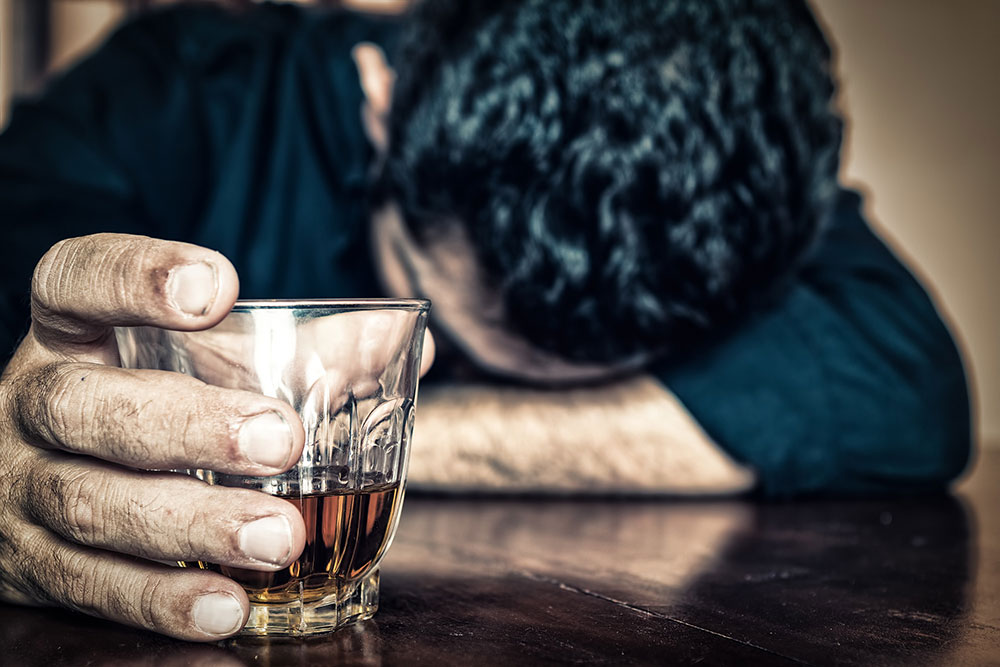Alcohol can have a profound effect on your body, and one of the most common complaints after a night of drinking is stomach pain. This discomfort can range from mild indigestion to more severe symptoms like cramping, nausea, and sharp pains.
But why does your stomach hurt after drinking alcohol, and what can you do about it? Understanding how alcohol affects your stomach can help you make informed decisions about your drinking habits and seek appropriate treatment when necessary.
At Spero Recovery, we understand the harmful effects of alcohol on your physical and mental health. As a men’s residential treatment center, we offer a 12-step recovery program designed to help individuals overcome addiction, rebuild their lives, and restore their health. If stomach pain or other physical symptoms are part of your experience, our holistic approach to recovery can support you through the healing process.
Why Does My Stomach Hurt After Drinking?
Stomach pain after drinking alcohol is a common issue that can occur for several reasons. Alcohol is an irritant to the lining of the digestive system, which includes the esophagus, stomach, and intestines. When alcohol enters your stomach, it can cause inflammation and irritation, particularly if consumed in large amounts or on an empty stomach.
Here are some potential reasons your stomach may hurt after drinking:
- Irritation of the stomach lining: Alcohol is acidic and can irritate the mucous lining that protects your stomach, leading to inflammation and discomfort.
- Increased acid production: Drinking alcohol can cause your stomach to produce more acid than usual, leading to acid reflux, indigestion, and even stomach ulcers over time.
- Dehydration: Alcohol is a diuretic, which means it increases urine production and can lead to dehydration. Dehydration can cause stomach cramping and discomfort, as your digestive system relies on adequate hydration to function properly.
- Delayed digestion: Alcohol slows down the process of digestion, causing food to sit longer in your stomach. This can result in bloating, nausea, and abdominal pain.
How Does Alcohol Affect Your Stomach?
Alcohol’s effects on your stomach can be immediate, especially if you drink excessively. Beyond causing short-term pain and discomfort, alcohol can also have long-lasting effects on the digestive system if consumed regularly over time.
Alcohol can interfere with your body’s ability to break down and absorb nutrients from the food you eat. When alcohol is consumed, it disrupts the normal functioning of digestive enzymes, which are responsible for breaking down proteins, fats, and carbohydrates.
As a result, food remains in the stomach longer than it should, leading to bloating and discomfort. Chronic alcohol consumption can impair nutrient absorption in the small intestine, which may cause malnutrition and related health problems.
In addition to short-term discomfort, long-term alcohol use can lead to serious digestive issues. These may include:
- Chronic gastritis: Inflammation of the stomach lining can become chronic if alcohol consumption continues over time. This can lead to persistent stomach pain, nausea, and vomiting.
- Stomach ulcers: The increased acid production caused by alcohol can erode the stomach lining, resulting in painful ulcers. These open sores can cause sharp abdominal pain, especially after eating or drinking.
- Pancreatitis: Heavy drinking can inflame the pancreas, an organ that plays a crucial role in digestion. Pancreatitis can cause severe stomach pain, nausea, vomiting, and can be life-threatening if not treated.
The stomach issues may cause chronic problems that lead to lasting damage within the body. This emphasizes the importance of medication-assisted treatment in addiction treatment programs, as they can help alleviate pain and prevent further damage that may occur during detox.
Can Drinking Make You Sick?
Yes, drinking alcohol can make you physically sick. While some people experience mild symptoms like nausea or an upset stomach after drinking, others may experience more severe reactions. These may include vomiting, dehydration, or food poisoning from impaired digestion.
Drinking excessively or regularly can weaken your immune system and make your body more vulnerable to infections. Alcohol can also irritate the lining of your gastrointestinal tract, making it more susceptible to damage and illness.
What is Alcohol Gastritis?
Alcohol gastritis is a condition where the stomach lining becomes inflamed due to excessive alcohol consumption. Gastritis can be acute (occurring suddenly) or chronic (developing over time with ongoing alcohol use). Alcohol irritates the stomach lining, leading to inflammation, swelling, and damage to the protective mucous layer.
What Does Alcohol Gastritis Feel Like?
Symptoms of alcohol gastritis can vary in severity, but often include:
- Sharp or burning stomach pain
- Nausea and vomiting
- Bloating and indigestion
- Loss of appetite
- Blood in vomit or stool (in severe cases)
Alcohol gastritis can be extremely uncomfortable and may worsen if drinking continues. If left untreated, chronic gastritis can lead to more serious health problems, such as stomach ulcers and an increased risk of stomach cancer.
What Should You Do If Your Stomach Hurts After Drinking?
Here are a few things you can do to alleviate discomfort after drinking:
- Stop drinking: If you’re experiencing stomach pain, it’s best to stop drinking immediately. Continuing to consume alcohol will only worsen the irritation and inflammation in your stomach.
- Stay hydrated: Drink plenty of water to help flush alcohol out of your system and reduce dehydration. Avoid caffeinated or carbonated beverages, as these can further irritate your stomach.
- Eat light, bland foods: If your stomach is upset, stick to light, easily digestible foods like toast, bananas, or rice. Avoid spicy, greasy, or acidic foods that could further irritate your stomach.
- Take antacids or medication: Over-the-counter antacids can help neutralize stomach acid and relieve symptoms of heartburn and indigestion. If your symptoms persist, consult a doctor for appropriate medication.
- Seek medical help: If your stomach pain is severe or persists for more than a day, seek medical attention. Stomach pain after drinking could be a sign of a more serious condition like gastritis, ulcers, or pancreatitis.
If you experience stomach pain after drinking, it’s important to listen to your body and take steps to prevent further damage.
12-Step Program to Stop Drinking
If you are struggling with alcohol use and experiencing physical symptoms like stomach pain, it may be time to consider treatment for alcohol addiction. Spero Recovery offers a comprehensive 12-step recovery program that addresses both the physical and psychological aspects of addiction.
The 12-step program is a proven approach that helps individuals achieve sobriety through:
- Admitting powerlessness over alcohol: The first step is acknowledging that alcohol has control over your life and that you need help to overcome it.
- Seeking support: The program encourages individuals to lean on the support of others, whether it be through meetings, a sponsor, or a supportive community.
- Making amends: As part of the recovery process, participants are encouraged to make amends with those they may have hurt during their struggle with alcohol.
At Spero Recovery, we provide a safe and supportive environment for men to work through the 12 steps and overcome their addiction. Our residential program offers comprehensive treatment that includes therapy, group support, and education about the effects of alcohol on the body. In addition to physical recovery, we focus on rebuilding mental and emotional health, so you can move forward with a healthier and happier life.
Call Spero Recovery for Alcohol Treatment
Stomach pain after drinking alcohol is a clear sign that your body is reacting to damage caused by regular drinking of alcohol. Whether it’s due to acid irritation, dehydration, or chronic inflammation, this discomfort is a warning that continued drinking could lead to more severe health problems. If you’re struggling with alcohol use and experiencing physical symptoms, seeking help is crucial.
Call Spero Recovery to learn more about our 12-step program designed to help men break free from the cycle of addiction and regain control over their health and lives. Through comprehensive treatment, support, and guidance, you can heal both physically and emotionally from the effects of alcohol.








